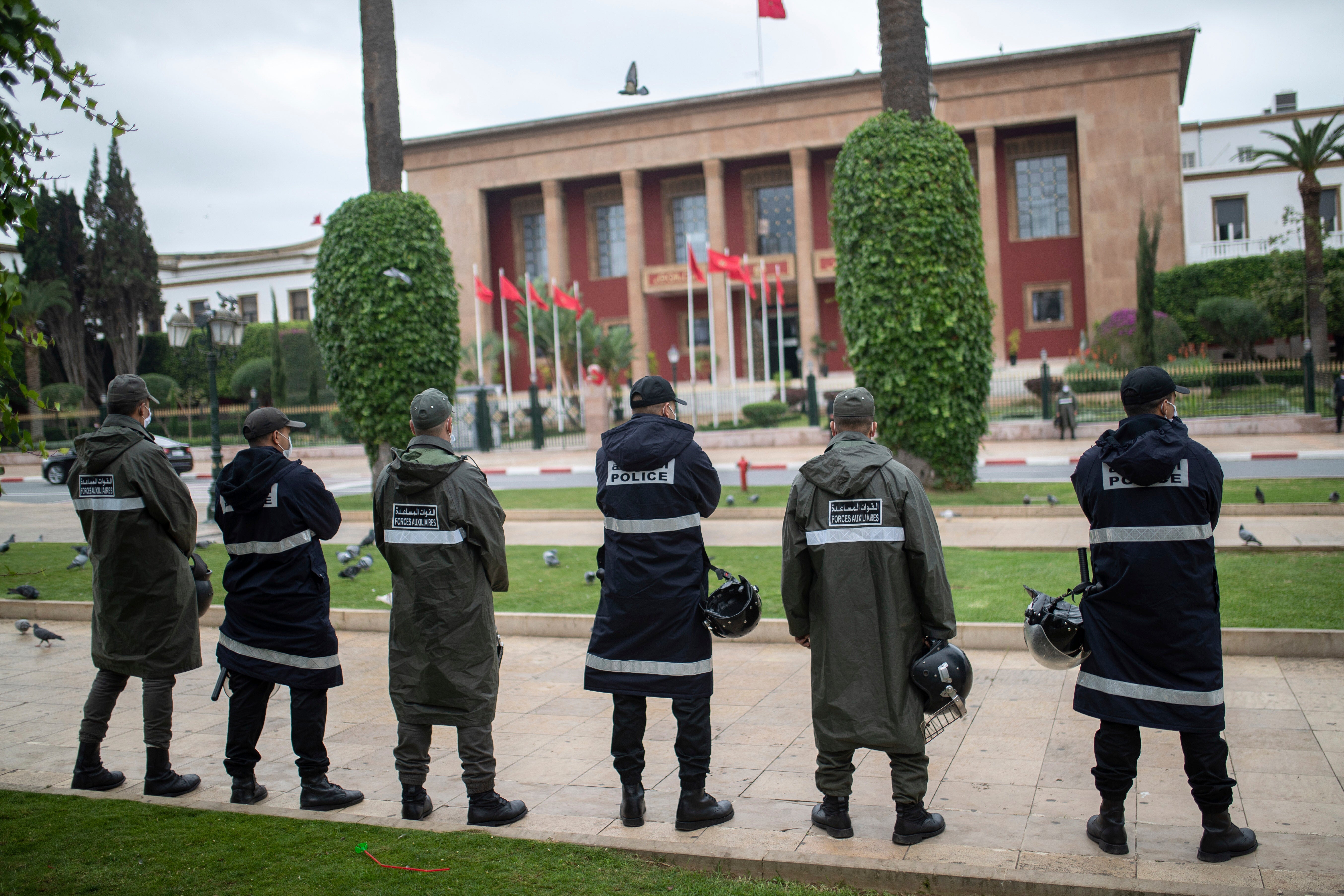Morocco's police disperse protest against ties with Israel
Moroccan authorities have dispersed a group of activists who attempted to stage a protest outside the parliament building in Rabat to denounce the country’s recent decision to establish diplomatic relations with Israel

Your support helps us to tell the story
From reproductive rights to climate change to Big Tech, The Independent is on the ground when the story is developing. Whether it's investigating the financials of Elon Musk's pro-Trump PAC or producing our latest documentary, 'The A Word', which shines a light on the American women fighting for reproductive rights, we know how important it is to parse out the facts from the messaging.
At such a critical moment in US history, we need reporters on the ground. Your donation allows us to keep sending journalists to speak to both sides of the story.
The Independent is trusted by Americans across the entire political spectrum. And unlike many other quality news outlets, we choose not to lock Americans out of our reporting and analysis with paywalls. We believe quality journalism should be available to everyone, paid for by those who can afford it.
Your support makes all the difference.Moroccan authorities on Monday dispersed a group of activists who tried to hold a protest outside the parliament building in the capital to denounce the country's recent decision to establish diplomatic relations with Israel.
Dozens of police officers in riot gear were mobilized to push protesters away from parliament in Rabat. Demonstrators wanted to show solidarity with Palestinians and reject the normalization of ties between Rabat and Tel Aviv.
The U.S. brokered deal was announced last week by President Donald Trump
Sion Assidon, a Moroccan Jew and a human rights activist, told reporters while being escorted away by authorities that “whoever expresses disagreement must put duct tape on their mouths.”
Abdessamad Fathi, president of the Moroccan Instance for the Support of Ummah Affairs, a group affiliated with the outlawed Al Adl Wal Ihsane movement, said on Facebook that authorities' decision to ban sit-in is an indication that normalizing relations with Israel is “imposed on Moroccans."
On Sunday, Moroccan authorities allowed a large gathering outside the Parliament building to support the recent deal that also included U.S. recognition of Morocco’s claim over the long-disputed Western Sahara region.
Another large rally was organized on Sunday in the city of Laayoune in Western Sahara, where thousands of Moroccans had chanted slogans in support of the agreement.
The royal palace in Rabat said in a statement that king Mohammed VI had promised President Donald Trump he would facilitate direct flights to transport Jews of Moroccan origin and Israeli tourists to and from Morocco and re-open the liaison offices. The announcement was cheered by political parties and provoked despair among Islamist groups.